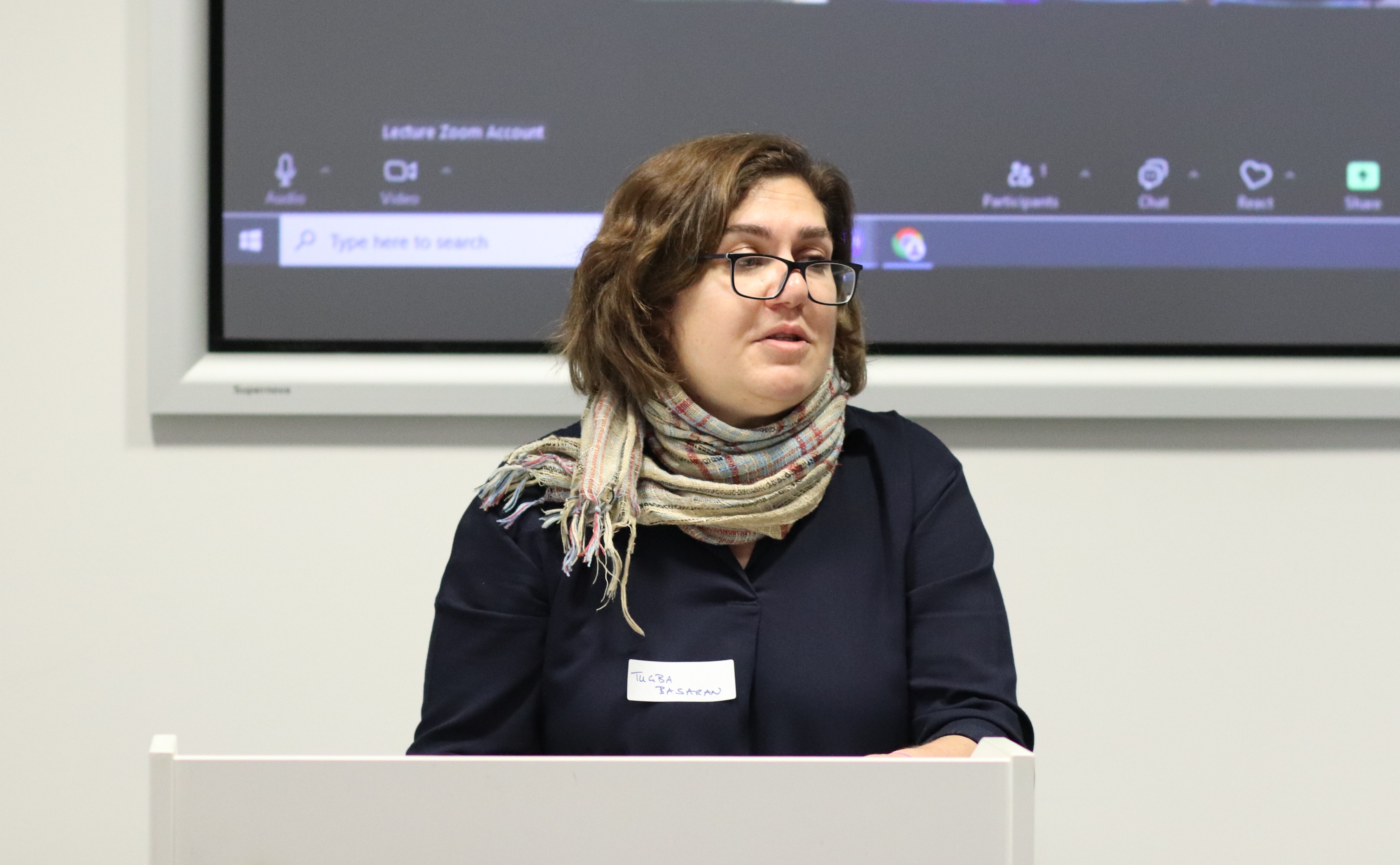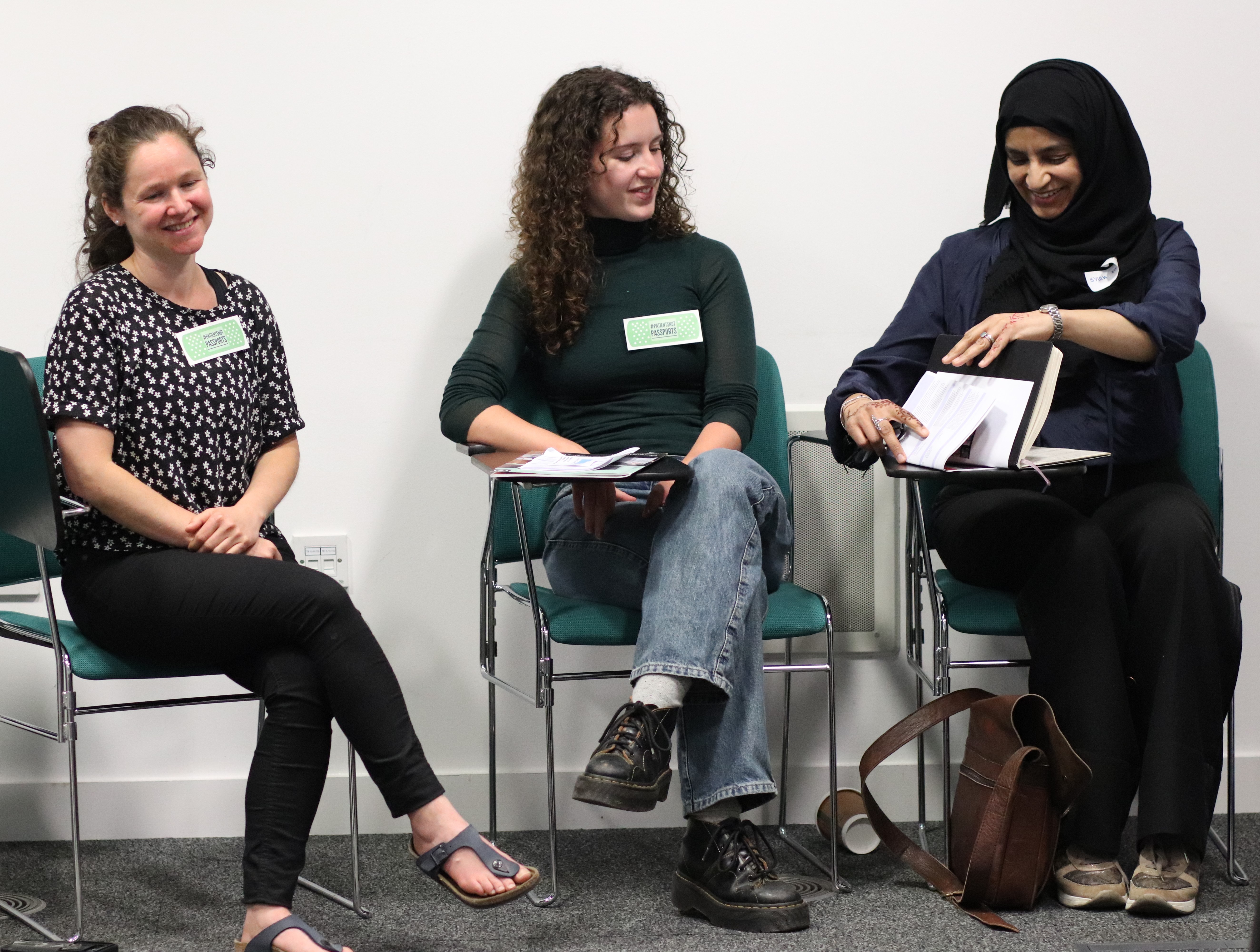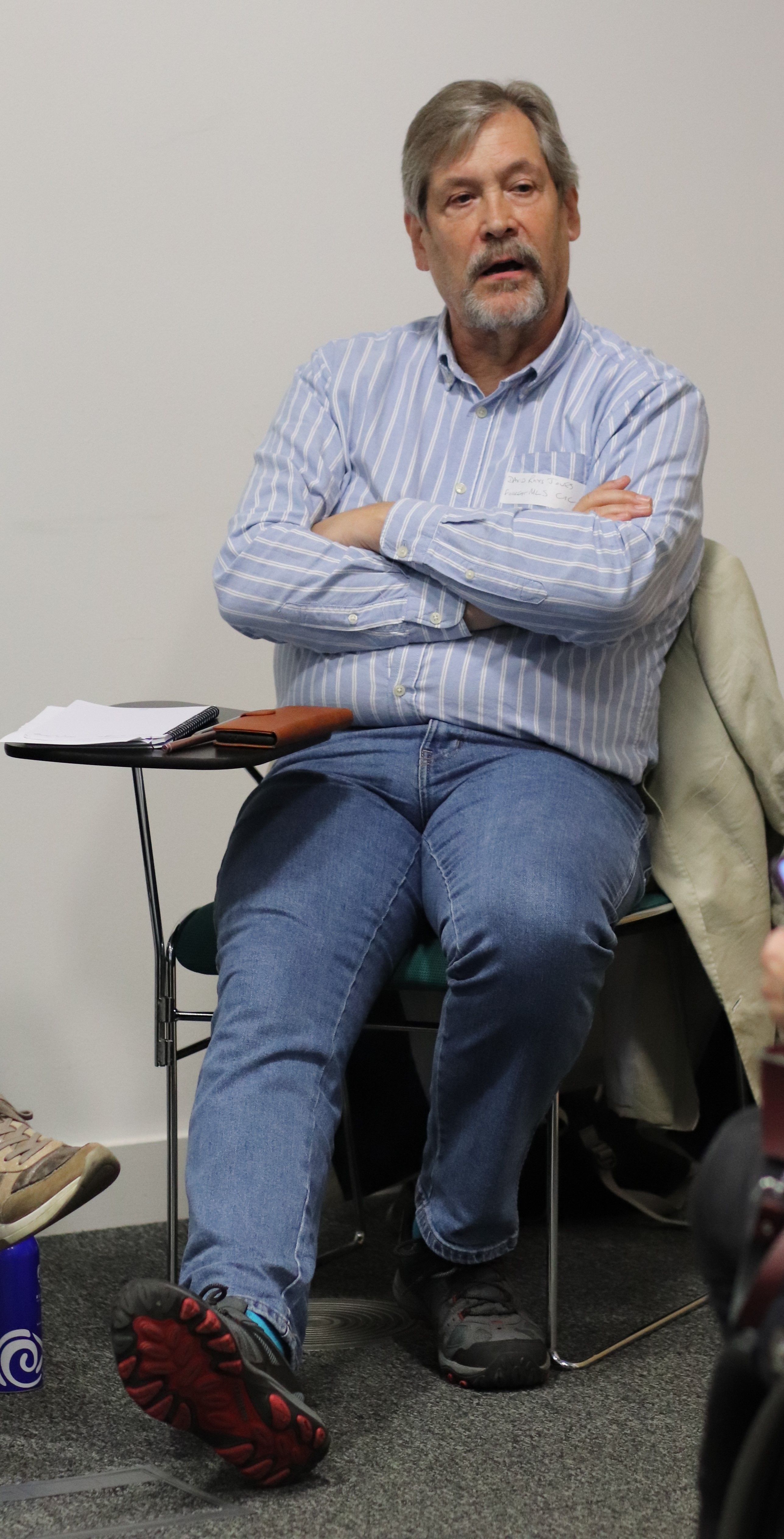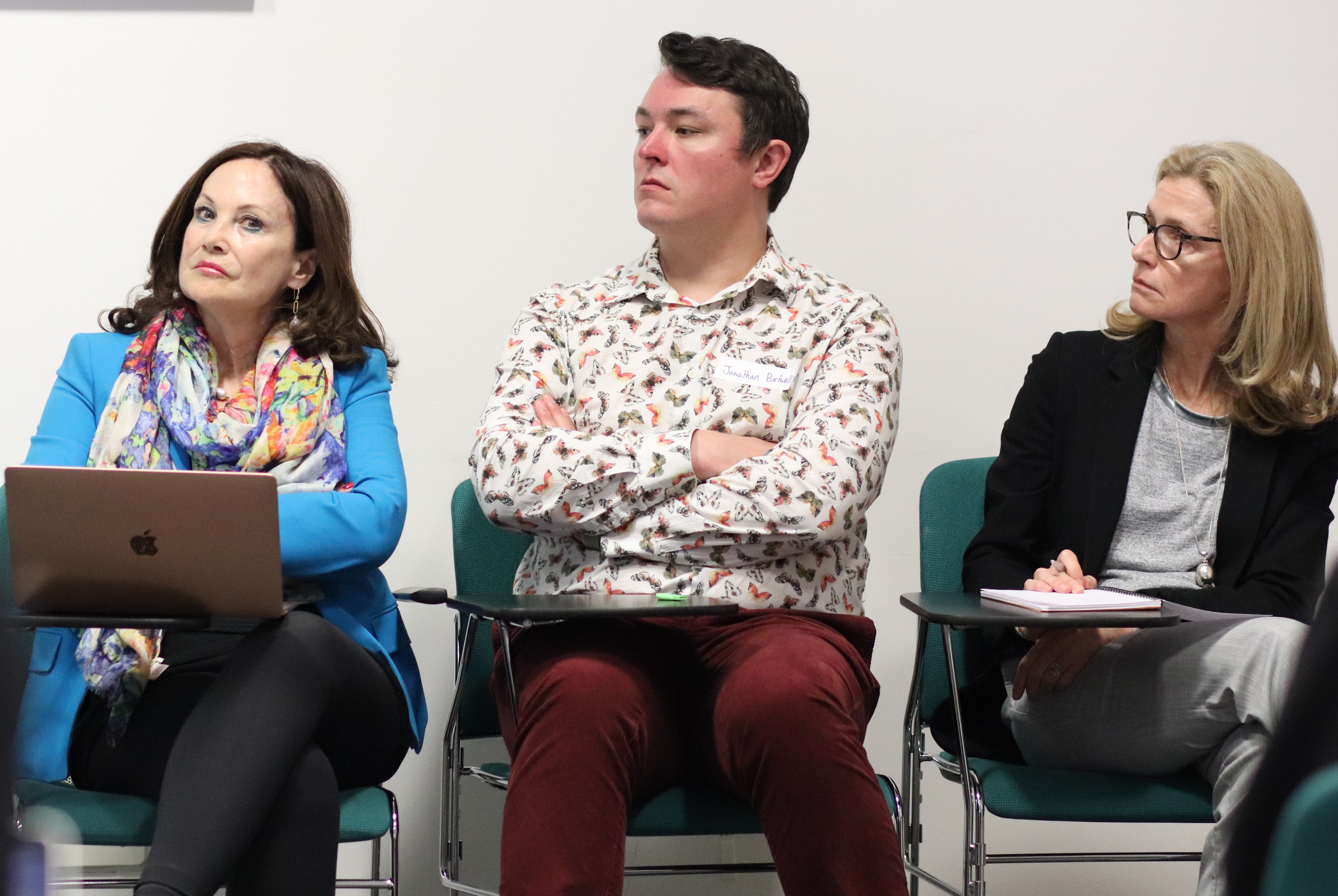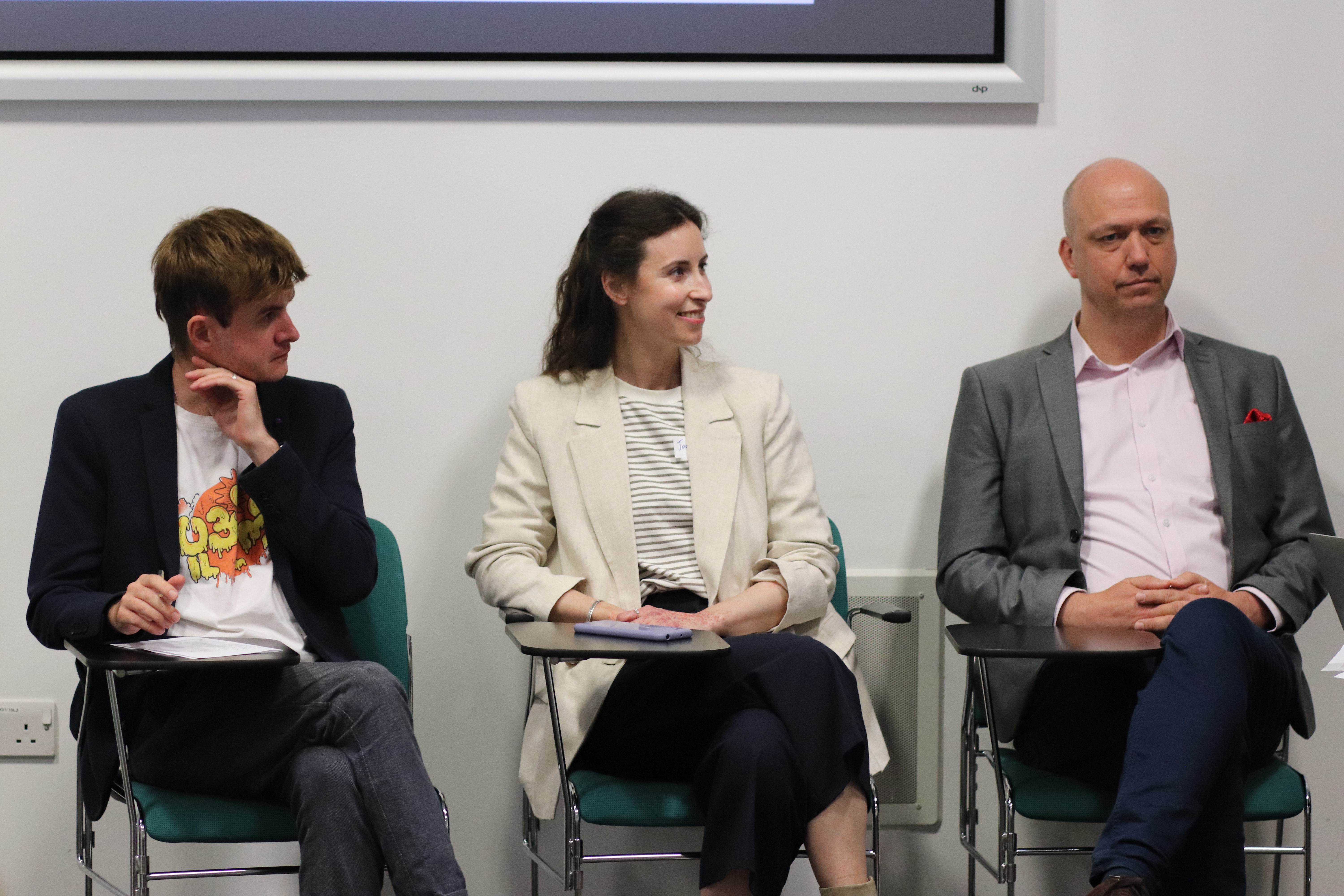
Submitted by Edward Grierson on Tue, 30/07/2024 - 14:44
On 20 June, Cambridge Refugee Hub at Cambridge University hosted its annual conference for World Refugee Day. The theme of the World Refugee Day 2024 was ‘Location: Global’.
Dr Tugba Basaran, Director of the Centre for the Study of Global Human Movement and Founder of the Cambridge Refugee Hub, opened with the observation, “travel is normal for us. If there was a conflict here, all of us would be able to leave by plane or ferry”. In how seeking refuge can be determined by chance. The people in the room - predominantly affluent Europeans and Americans - can easily move between countries for leisure. But for many of those currently seeking refuge, there are far more obstacles. Dr Basaran summed it up as “the birthright lottery”.
The day began by exploring Cambridge’s history with refugees, with journalist Mike Levy. In the 1930s, fascism displaced thousands of Europeans. But the Baldwin and Chamberlain governments of the UK offered little assistance, refusing to interfere in the Spanish Civil War, and evacuating very few people from Nazi-occupied Europe. The UK Home Office was hostile to Jewish refugees, seeing them as insular and unwilling to assimilate. It was through the help of volunteers that Cambridge accommodated refugees from war-torn Europe. Basque refugees from the Spanish Civil War settled at 29 Station Road. The youth hostel at 25 Parkside became a refuge for Jewish refugees. And Cambridge University sponsored the relocation of many German scholars from Nazi Germany.
Unfortunately, these hurdles and hostility still apply to refugees nearly a century later. Syira Ahsan, GP, works as Clinical Lead in Outreach Services and assists refugees in navigating the NHS. Jafia Naftali Camara came from the Faculty of Education. Their experience was with different public services. But both described a persistent view in the Home Office, that refugees needed no further help after being granted asylum. In the case of NHS access, the Home Office does not consider refugees’ medical needs, and how this affects where they are assigned to live. Ahsan described working with people who had been assigned to Dover, despite having conditions which required assistance in London. The so-called ‘hostile environment’ also introduced charges for undocumented immigrants, while making GPs report these migrants’ activities to the Home Office. This has resulted in many immigrants and refugees avoiding hospital visits.
We heard from representatives from Patients Not Passports, along with David Rhys-Jones of Forrest Medico-Legal Services, who assist refugees fighting discrimination in healthcare and educating GPs about refugee rights. They emphasised the importance of doctor-patient confidentiality with refugees and raising awareness that they are being charged for services.
Camara described a similar situation in the education sector. Children of undocumented immigrants are ineligible for financial support or free school meals. systemic cuts to English language programmes have made integration more difficult. And the same fear of Home Office monitoring makes refugee families reluctant to communicate with schools.
But the UK is only one country. British media often focuses on the refugees that arrive in this country, often with hysteria. But it gives comparatively little focus to those that settle elsewhere. This makes it important to discuss people claiming asylum in neighbouring countries, people displaced within their home countries, and the challenges they face.
Refugees are on the move across the world. Camara also discussed refugee rights in her native Brazil, which is currently hosting millions of refugees from Venezuela. Like the UK, she noted a lack of language programmes, in this case for Spanish and indigenous languages. However, she also highlighted the relative ease with which Brazilians and Venezuelans can cross borders, in contrast to the UK’s border policy.
Mohammad Hammoud and Maha Shuayb, both from the Faculty of Education, discussed how Lebanon accommodated refugees from neighbouring Syria. Over 1 million Syrians have entered Lebanon since the Syrian Civil War. But the Lebanese government has lacked a comprehensive strategy for incorporating them into the education system. Instead, it has resorted to ‘emergency education’, providing a temporary education separate from Lebanon’s main system, while offering Syrians no promise of resettling. As a result, many Syrian children are struggling in education, with individual needs being unmet.
This contrasts with Turkey and Australia, who have been far more proactive in integrating refugees into their main education system and offering long-term resettlement. Hammoud and Shuayb’s research found that refugee children in these countries were performing better academically than in Lebanon, despite the bigger linguistic and cultural differences.
Compounding this issue is a lack of research around refugees in the ‘Global South’. Cyrine Saab, also from the Faculty of Education, highlighted how research on refugees has been skewed towards countries in Europe and North America. This has only begun to change since the ‘refugee crisis’ a decade ago, but there is still a lack of comparative studies.
This shows why more voices from these countries are needed. For this reason, the Cambridge Refugee Hub has organised country desks, two of which were represented in the panels, the Afghanistan and Myanmar Desks.
The Taliban takeover of Afghanistan in 2021, two decades after they were removed, initially shocked the world. But three years on, Western media gives it comparatively little attention. It overlooks the persecution of minorities such as the Hazaras, the growth of Islamic State Khorasan Province (ISIS-K), and the USA’s shortcomings in withdrawing. Dr Marissa Quie, from the Department of Sociology, echoed Dr Basaran’s comments about the birthright lottery. Her foreign citizenship allowed her to leave Afghanistan beforehand, while close friends have died.
Many women who are stuck in Afghanistan are trying to continue education, and we heard from the people supporting them under Taliban rule. Jonathan Birtwell discussed the Cambridge Refugee Hub’s mentoring project for women due to enrol at university before the takeover. This is a collaborative project with Voice of America and the Afghanistan-based Rahela Trust. It involves improving the proficiency in English, teaching English for Academic Purposes, and tutoring in their specialist subjects.
This project is ongoing but faces major hurdles. The Taliban cut off internet access after 7:30 PM, and in some places have cut off internet entirely. Afghan women are also struggling to study whilst taking care of their daily chores.
There are similar issues in the wider humanitarian response of the university. Renatta Schaeffer spoke on behalf of the International Response Taskforce, coordinating the university’s response to humanitarian crises. There are few plans for long-term aid. Very few projects that tackle issues specifically affecting women. Moreover, institutions like Cambridge are constrained by their charity status, which limits the non-charitable work they can do.
The same year that the Taliban retook Afghanistan, Myanmar’s generals staged a coup, returning the country to a military dictatorship. This has led to large numbers of displaced Burmese both inside and outside of the country. Some ethnic groups, such as the Rohingya Muslims, face continued persecution. But once again, the UK media has barely covered Myanmar since the takeover.
Steve King from the Cambridge Partnership for Education, Joanna Barnard of Prospect Burma, and Charlie Artingstoll of Sin Sar Bar discussed their work with refugees in and outside of Myanmar. Many Rohingya have taken refuge in neighbouring Bangladesh. There, they face employment discrimination and cannot apply for university education. Cambridge Partnership for Education partnered with UNICEF, to improve the education in refugee camps. They provided the teachers in the camps with academic training and introduced a framework for assessment. Meanwhile, Prospect Burma have provided similar opportunities for people looking to enter tertiary education. These include a scholarship programme for undocumented students to attend foreign universities and bridging programmes to give them English language skills. Finally, Sin Sar Bar is a strategic communications organisation movement based in Myanmar. They utilise Burmese social media influencers to promote issues such as menstrual health, landmine awareness, and domestic violence. These are promoted in all of Myanmar’s 130 languages, including Rohingya.
Countering hysteria around refugees also needs to happen at a grassroots level. Bonds need to be made between them and the communities they settle into. Many refugees have skills to draw on and want the opportunity to implement those skills. This was the catalyst for HomeART, a project by Anglia Ruskin University which runs workshops for refugee and migrant women in the East of England. Anglia Ruskin’s Dr Adriana Sandu chaired a panel on HomeART’s impact so far.
Refugee women have been given the confidence to develop their existing skills and knowledge and share it with locals. More importantly, HomeART has led textile and pottery projects that draw from these women’s home cultures. And this year, with the theme of Refugee Week being ‘Our Home’, they are creating art which speaks to these women’s role as homeowners. All of this has allowed migrant women to reach out to their local communities, while reinforcing their own sense of identity.
Perhaps the best way to grasp human movement today is to look into the past and see how our ancestors viewed it. For Sarah Fine from Philosophy, and Tim Whitmarsh and Anastasia Christophilopoulou, both from Classics, this meant looking back to the Classical world. The concept of refuge was very prominent in both Greek and Roman culture- in Euripides’ play ‘Children of Heracles’, the eponymous children are granted refuge by Athens. Displacement is baked into the story of Troy. Aeneas has to flee from his home city after war consumes it; Odysseus finds himself lost at sea for a decade, unable to return home.
While the Mediterranean Sea represents the boundaries of Europe nowadays, for Greece and Rome it was much more of a highway. Travel to and from the Near East was comparatively easier. To this day, Greek islands such as Samos and Lesbos show incredible hospitality towards outsiders. For the first two years of the refugee crisis, they provided food and shelter to large numbers of refugees.
This year’s theme for UK Refugee Week is ‘Our Home’. For millions of displaced people, their home is not the place they were born or grew up in. Wherever they are now, it is important that it feels like their home- somewhere safe, which provides their needs. Listening to refugees, and the people that work with them, helps us to make our country feel like their home as well.

